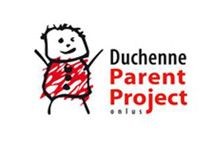PPMD Presents Proposal for FDA Patient Engagement Efforts to Congress
Written by |

 The Parent Project Muscular Dystrophy (PPMD) recently petitioned Congress to ask for more support in strengthening existing programs dedicated to finding treatment options and an eventual cure for Duchenne muscular dystrophy. The association hopes to increase federal funding and awareness for patients suffering from the disease.
The Parent Project Muscular Dystrophy (PPMD) recently petitioned Congress to ask for more support in strengthening existing programs dedicated to finding treatment options and an eventual cure for Duchenne muscular dystrophy. The association hopes to increase federal funding and awareness for patients suffering from the disease.
Specifically, PPMD is advocating for provisions within the 21st Century Cures Initiatives, to allow for oversight into whether or not the Initiative is utilizing new patient engagement tools. Specifically, the PPMD in collaboration with other stakeholders wants to evaluate the agency’s use of new engagement tools, and has drafted a reform proposal that was part of their presentation to Congress.
The PPMD has been responsible for leading the DMD and rare disease community in a multi-stakeholder effort to draft and submit to the FDA a first-ever patient advocacy initiated draft guidance for industry developing therapies for Duchenne. The draft guidance was submitted to FDA in late June and a public comment period closed in early October.
PPMD has also established a partnership with Johns Hopkins University designed to create a scientific survey that helps assess primary DMD caregivers’ perspective on both the benefits and risks of potential, new therapies. To date, the FDA has praised this effort, and has gone on to encourage other patient communities to do the same.
[adrotate group=”3″]
 “We have seen significant progress over the years in how the FDA pays attention to the voice of the patient. PPMD has been focused relentlessly on this issue and has produced several groundbreaking tools intended to achieve this goal,” said PPMD Founding President & CEO Pat Furlong. “Now, we must know that this work is bearing fruit and that FDA will actually be using these new tools as they review therapies for Duchenne and beyond.”
“We have seen significant progress over the years in how the FDA pays attention to the voice of the patient. PPMD has been focused relentlessly on this issue and has produced several groundbreaking tools intended to achieve this goal,” said PPMD Founding President & CEO Pat Furlong. “Now, we must know that this work is bearing fruit and that FDA will actually be using these new tools as they review therapies for Duchenne and beyond.”
The Patient-Impact Assessment Act is one of the proposals being supported by the PPMD, since the organization believes it could be a simple and publicly accessible measurement tool for the FDA to conduct revisions of their other resources and tools focused on the patient-focused drug development. “Such an assessment tool would shed light into how Patient Focused Drug Development (PFDD) tools and authorities are or are not being used and would help identify gaps or shortcomings in the space,” added Furlong.
“Across the whole continuum of discovery, development, and delivery a new focus on the patient is changing culture, practice, and policy. PPMD has pioneered a new model for advancing the science of patient input, one that will help transform the way in which patient perspectives are collected and understood,” said the director of strategic initiatives at FasterCures, Kim McCleary, another organization that has also supported the presentation of the proposal in the Congress.
FasterCures champions a broader partnership of patient, industry, and government organizations to further define the science of patient input and use it to inform decision-making at all levels; the 21st Century Cures Initiative has reinforced the potential for this collaborative approach,” added McCleary. In addition to PPMD and FasterCures, Pharmaceutical Research and Manufacturers of America (PhRMA) also presented the PFDD efforts and recommendations.





